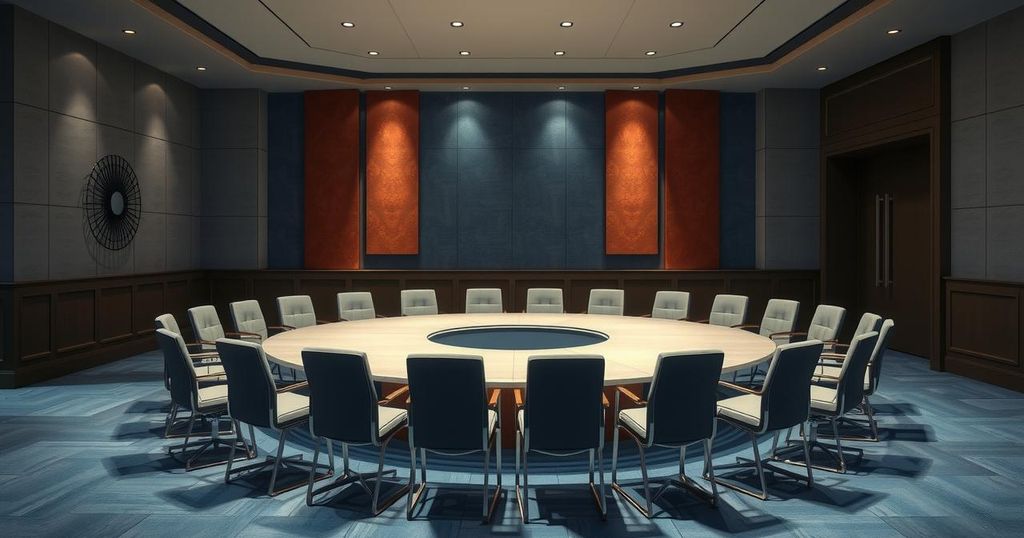Russia rebuked Syria’s new leadership during a closed UN briefing, voicing concerns about rising jihadists and drawing comparisons to the Rwandan genocide. Despite strategic military interests in Syria, Moscow criticized the government’s policies, particularly regarding Alawites, while advocating for national unity. The UN Security Council is considering a statement condemning the violence and urging inclusivity in Syria’s political transition.
Russia strongly criticized Syria’s new leadership during a closed United Nations briefing, voicing concerns about the rise of jihadists and drawing parallels between sectarian killings of Alawites and the Rwandan genocide. This condemnation comes despite Russia’s strategic interest in maintaining military bases in coastal Syria, particularly after recent violence targeting Alawites following an attack on government security forces attributed to loyalists of ousted leader Bashar al-Assad.
The Kremlin, which had previously supported Assad, has called for national unity in Syria while privately expressing scathing criticism of the Islamist regime during a Security Council meeting. Moscow’s envoy Vassily Nebenzia remarked that akin to the Rwandan genocide, the ongoing bloodshed has gone unaddressed, a description he later defended in response to inquiries.
Anna Borshchevskaya, a Russia expert, noted Russia’s dual approach of maintaining public restraint while exercising open criticism in private discussions, reflecting their efforts to regain influence in Syria without severing ties with the new government. Additionally, she pointed out that cooperating with the United States enhances Russia’s stature as a global power.
Nebenzia raised alarms over the destabilizing actions of the new regime, expressing fears that the situation might mirror the chaos in Iraq post-Saddam Hussein. This included concerns over public sector layoffs perceived to marginalize Alawite workers, amidst claims of an unwelcome influence from foreign fighters in the new military structure.
Syria’s interim president, Ahmed al-Sharaa, countered these criticisms by stating his administration’s commitment to inclusivity and maintaining strong relations with Russia. During the briefing, Russia characterized the new leadership’s policy shifts as fostering corruption, while other major world powers expressed their apprehensions over foreign fighters exacerbating the ongoing conflict.
As the UN Security Council deliberates a consensus-driven statement condemning the violence, analysts note that international engagement with Syria increasingly hinges on an inclusive political transition that acknowledges the complex religious and ethnic landscape of the nation.
In summary, Russia’s harsh critique of Syria’s new leadership highlights significant concerns regarding sectarian violence and the potential for further instability similar to historical precedents. This response reflects Russia’s desire to maintain its influence while cautiously navigating its relationship with both the new regime and international actors. As the Security Council contemplates a unified stance, the emphasis on inclusivity in Syria’s political transition becomes essential for fostering national harmony.
Original Source: www.usnews.com




